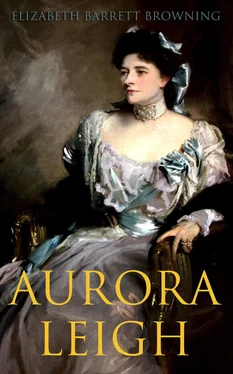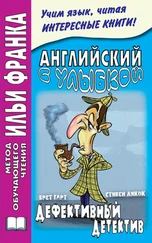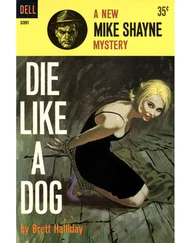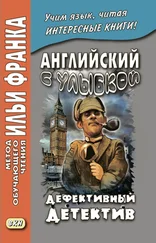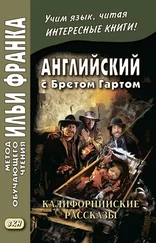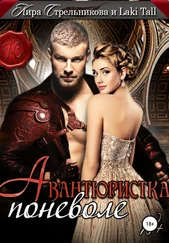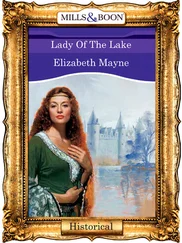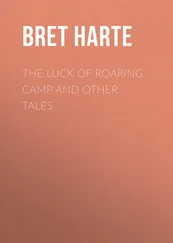‘Come, come,’ they tried to utter, and I went; As if a ghost had drawn me at the point Of a fiery finger through the uneven dark, I went with reeling footsteps down the stair, Nor asked a question. There she sate, my aunt— Bolt upright in the chair beside her bed, Whose pillow had no dint! she had used no bed For that night’s sleeping … yet slept well. My God, The dumb derision of that grey, peaked face Concluded something grave against the sun, Which filled the chamber with its July burst When Susan drew the curtains, ignorant Of who sate open-eyed behind her. There, She sate … it sate … we said ‘she’ yesterday … And held a letter with unbroken seal, As Susan gave it to her hand last night: All night she had held it. If its news referred To duchies or to dunghills, not an inch She’d budge, ’twas obvious, for such worthless odds: Nor, though the stars were suns, and overburned Their spheric limitations, swallowing up Like wax the azure spaces, could they force Those open eyes to wink once. What last sight Had left them blank and flat so—drawing out The faculty of vision from the roots, As nothing more, worth seeing, remained behind?
Were those the eyes that watched me, worried me? That dogged me up and down the hours and days, A beaten, breathless, miserable soul? And did I pray, a half hour back, but so, To escape the burden of those eyes … those eyes? ‘Sleep late’ I said.— Why now, indeed, they sleep. God answers sharp and sudden on some prayers, And thrusts the thing we have prayed for in our face, A gauntlet with a gift in’t. Every wish Is like a prayer … with God. I had my wish— To read and meditate the thing I would, To fashion all my life upon my thought, And marry, or not marry. Henceforth, none Could disapprove me, vex me, hamper me. Full ground-room, in this desert newly made, For Babylon or Balbec—when the breath, Just choked with sand, returns, for building towns! The heir came over on the funeral day, And we two cousins met before the dead, With two pale faces. Was it death or life That moved us? When the will was read and done, The official guest and witnesses withdrawn, We rose up in a silence almost hard, And looked at one another. Then I said, ‘Farewell, my cousin.’ But he touched, just touched My hatstrings tied for going, (at the door The carriage stood to take me) and said low, His voice a little unsteady through his smile, ‘Siste, viator.’ ‘Is there time,’ I asked, ‘In these last days of railroads, to stop short Like Cæsar’s chariot (weighing half a ton) On the Appian road, for morals?’ ‘There is time,’ He answered grave, ‘for necessary words, Inclusive, trust me, of no epitaph On man or act, my cousin. We have read A will, which gives you all the personal goods And funded monies of your aunt.’ ‘I thank Her memory for it. With three hundred pounds We buy in England even, clear standing-room To stand and work in. Only two hours since, I fancied I was poor.’ ‘And, cousin, still You’re richer than you fancy. The will says, Three hundred pounds, and any other sum Of which the said testatrix dies possessed . I say she died possessed of other sums.’
‘Dear Romney, need we chronicle the pence? I’m richer than I thought—that’s evident. Enough so.’ ‘Listen rather. You’ve to do With business and a cousin,’ he resumed, ‘And both, I fear, need patience. Here’s the fact. The other sum (there is another sum, Unspecified in any will which dates After possession, yet bequeathed as much And clearly as those said three hundred pounds) Is thirty thousand. You will have it paid When? … where? My duty troubles you with words.’
He struck the iron when the bar was hot; No wonder if my eyes sent out some sparks. ‘Pause there! I thank you. You are delicate In glosing gifts;—but I, who share your blood, Am rather made for giving, like yourself, Than taking, like your pensioners. Farewell.’
He stopped me with a gesture of calm pride. ‘A Leigh,’ he said, ‘gives largesse and gives love, But gloses neither: if a Leigh could glose, He would not do it, moreover, to a Leigh, With blood trained up along nine centuries To hound and hate a lie, from eyes like yours. And now we’ll make the rest as clear; your aunt Possessed these monies.’ ‘You will make it clear, My cousin, as the honour of us both, Or one of us speaks vainly—that’s not I. My aunt possessed this sum—inherited From whom, and when? bring documents, prove dates.’
‘Why now indeed you throw your bonnet off, As if you had time left for a logarithm! The faith’s the want. Dear cousin, give me faith, And you shall walk this road with silken shoes, As clean as any lady of our house Supposed the proudest. Oh, I comprehend The whole position from your point of sight. I oust you from your father’s halls and lands, And make you poor by getting rich—that’s law; Considering which, in common circumstance, You would not scruple to accept from me Some compensation, some sufficiency Of income—that were justice; but, alas, I love you … that’s mere nature!—you reject My love … that’s nature also;—and at once, You cannot, from a suitor disallowed, A hand thrown back as mine is, into yours Receive a doit, a farthing, … not for the world! That’s etiquette with women, obviously Exceeding claim of nature, law, and right, Unanswerable to all. I grant, you see, The case as you conceive it—leave you room To sweep your ample skirts of womanhood; While, standing humbly squeezed against the wall, I own myself excluded from being just, Restrained from paying indubitable debts, Because denied from giving you my soul— That’s my misfortune!—I submit to it As if, in some more reasonable age, ’Twould not be less inevitable. Enough. You’ll trust me, cousin, as a gentleman, To keep your honour, as you count it, pure— Your scruples (just as if I thought them wise) Safe and inviolate from gifts of mine.’
I answered mild but earnest. ‘I believe In no one’s honour which another keeps, Nor man’s nor woman’s. As I keep, myself, My truth and my religion, I depute No father, though I had one this side death, Nor brother, though I had twenty, much less you, Though twice my cousin, and once Romney Leigh, To keep my honour pure. You face, to-day, A man who wants instruction, mark me, not A woman who wants protection. As to a man, Show manhood, speak out plainly, be precise With facts and dates. My aunt inherited This sum, you say—’ ‘I said she died possessed Of this, dear cousin.’ ‘Not by heritage. Thank you: we’re getting to the facts at last. Perhaps she played at commerce with a ship Which came in heavy with Australian gold? Or touched a lottery with her finger-end, Which tumbled on a sudden into her lap Some old Rhine tower or principality? Perhaps she had to do with a marine Sub-transatlantic railroad, which pre-pays As well as pre-supposes? or perhaps Some stale ancestral debt was after-paid By a hundred years, and took her by surprise?— You shake your head my cousin; I guess ill.’
‘You need not guess, Aurora, nor deride— The truth is not afraid of hurting you. You’ll find no cause, in all your scruples, why Your aunt should cavil at a deed of gift ’Twixt her and me.’ ‘I thought so—ah! a gift.’
‘You naturally thought so,’ he resumed. ‘A very natural gift.’ ‘A gift, a gift! Her individual life being stranded high Above all want, approaching opulence, Too haughty was she to accept a gift Without some ultimate aim: ah, ah, I see— A gift intended plainly for her heirs, And so accepted … if accepted … ah, Indeed that might be; I am snared perhaps, Just so. But, cousin, shall I pardon you, If thus you have caught me with a cruel springe?’
He answered gently, ‘Need you tremble and pant Like a netted lioness? is’t my fault, mine, That you’re a grand wild creature of the woods, And hate the stall built for you? Any way, Though triply netted, need you glare at me? I do not hold the cords of such a net; You’re free from me, Aurora!’ ‘Now may God Deliver me from this strait! This gift of yours Was tendered … when? accepted … when?’ I asked. ‘A month … a fortnight since? Six weeks ago It was not tendered. By a word she dropped, I know it was not tendered nor received. When was it? bring your dates.’ ‘What matters when? A half-hour ere she died, or a half-year, Secured the gift, maintains the heritage Inviolable with law. As easy pluck The golden stars from heaven’s embroidered stole, To pin them on the grey side of this earth, As make you poor again, thank God.’ ‘Not poor Nor clean again from henceforth, you thank God? Well, sir—I ask you … I insist at need, … Vouchsafe the special date, the special date.’
Читать дальше
